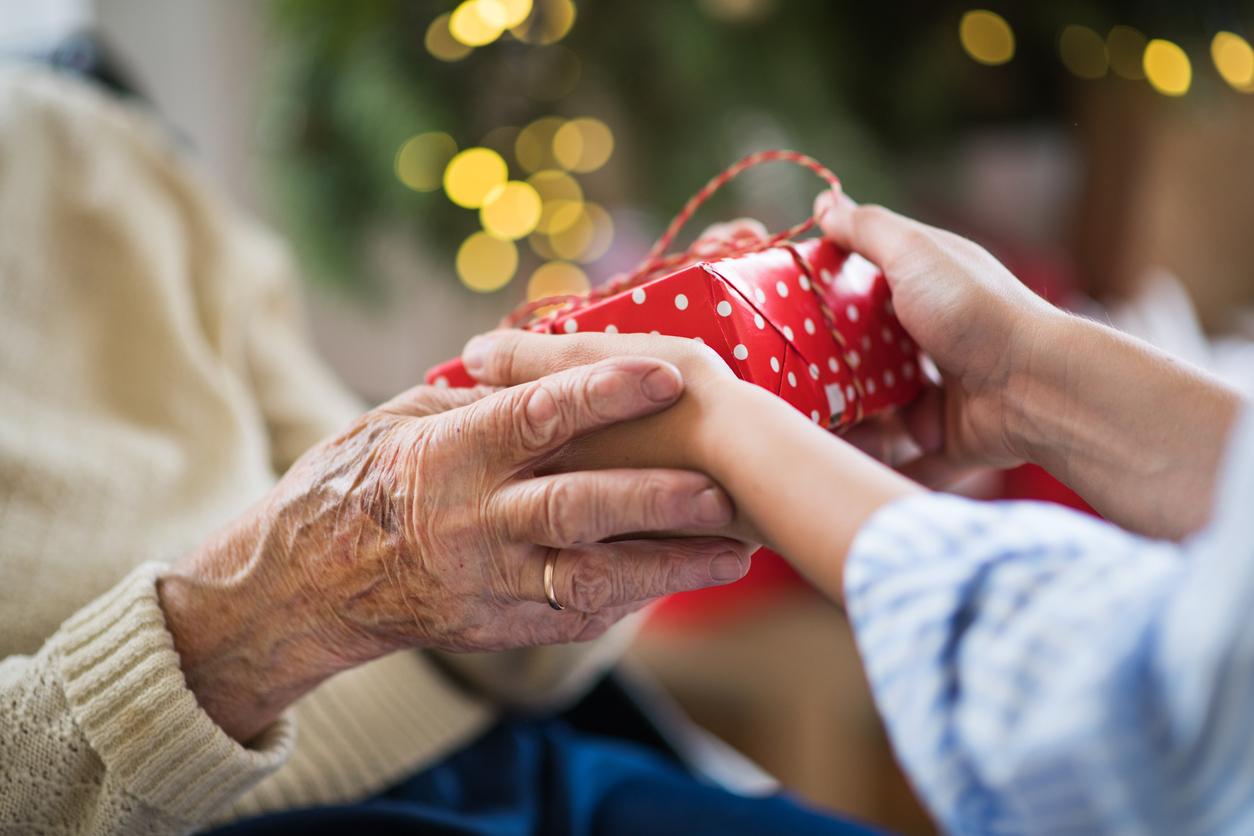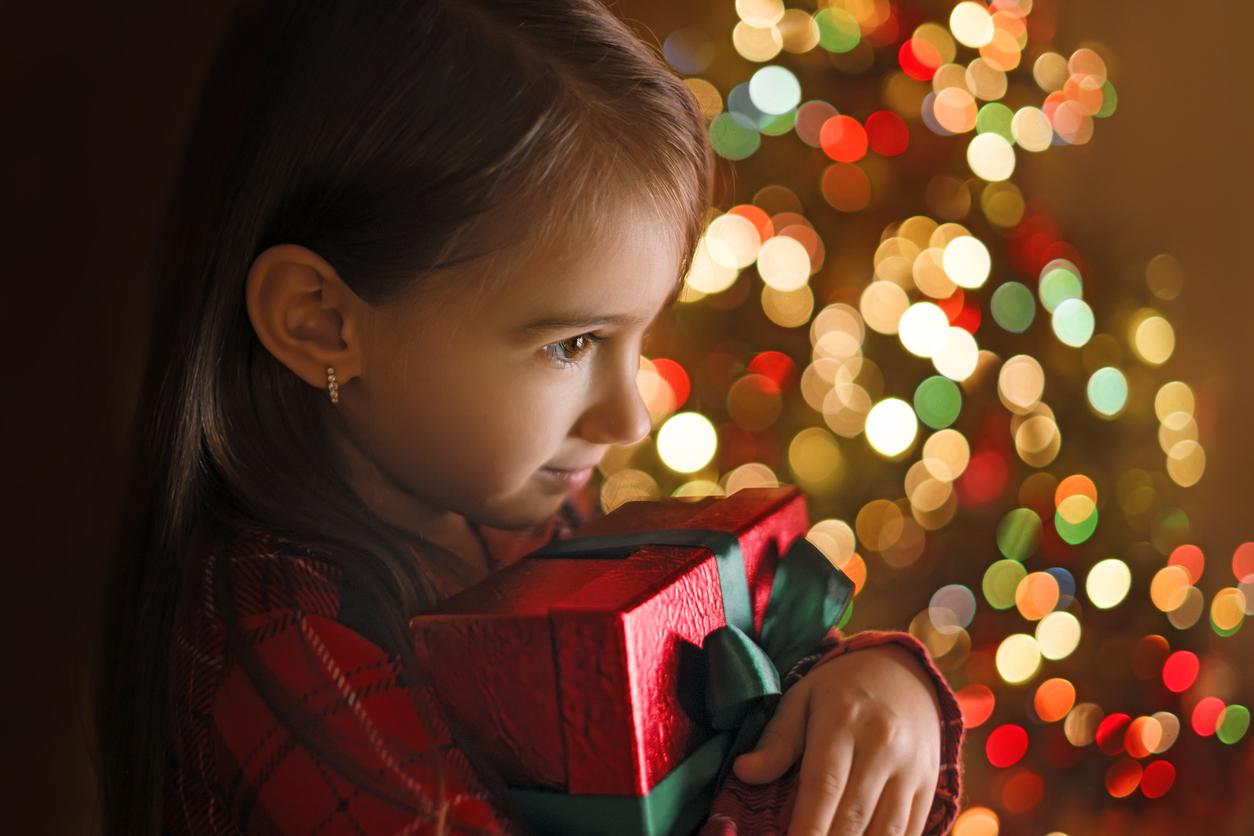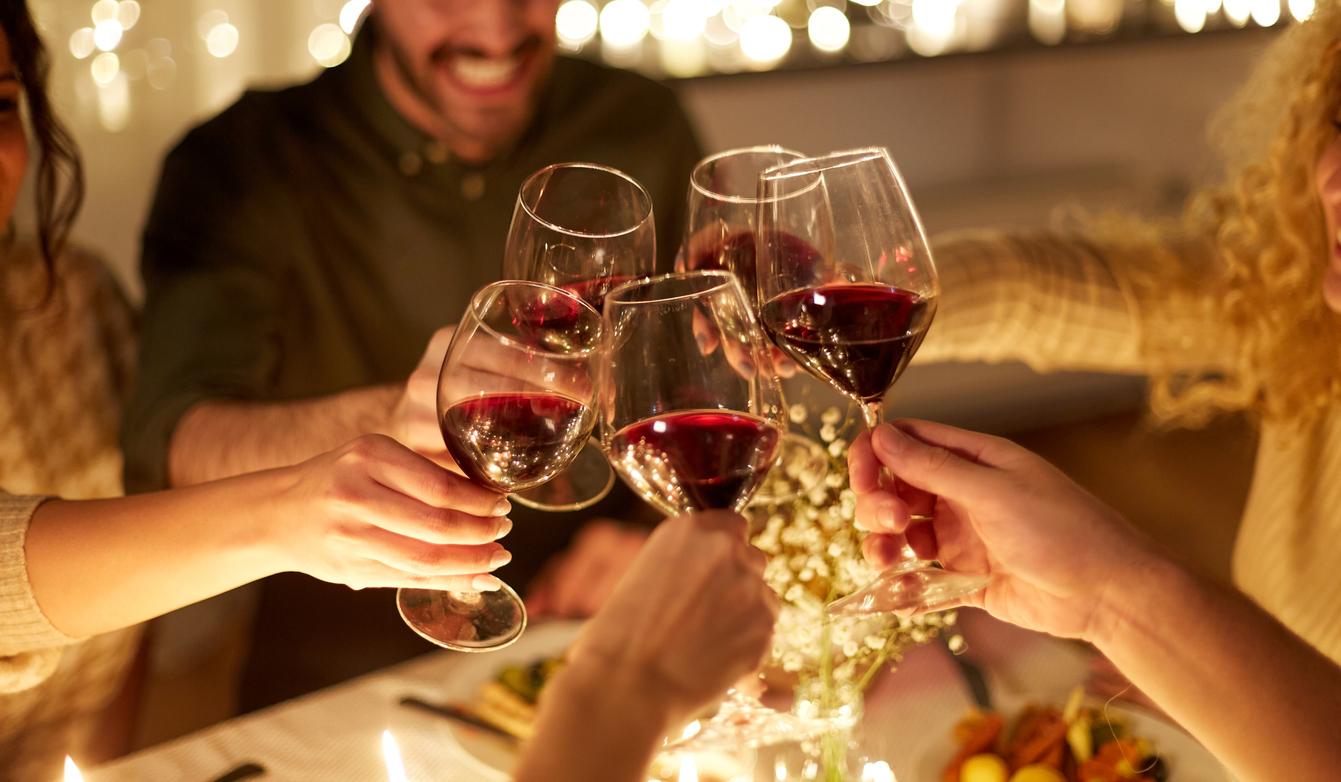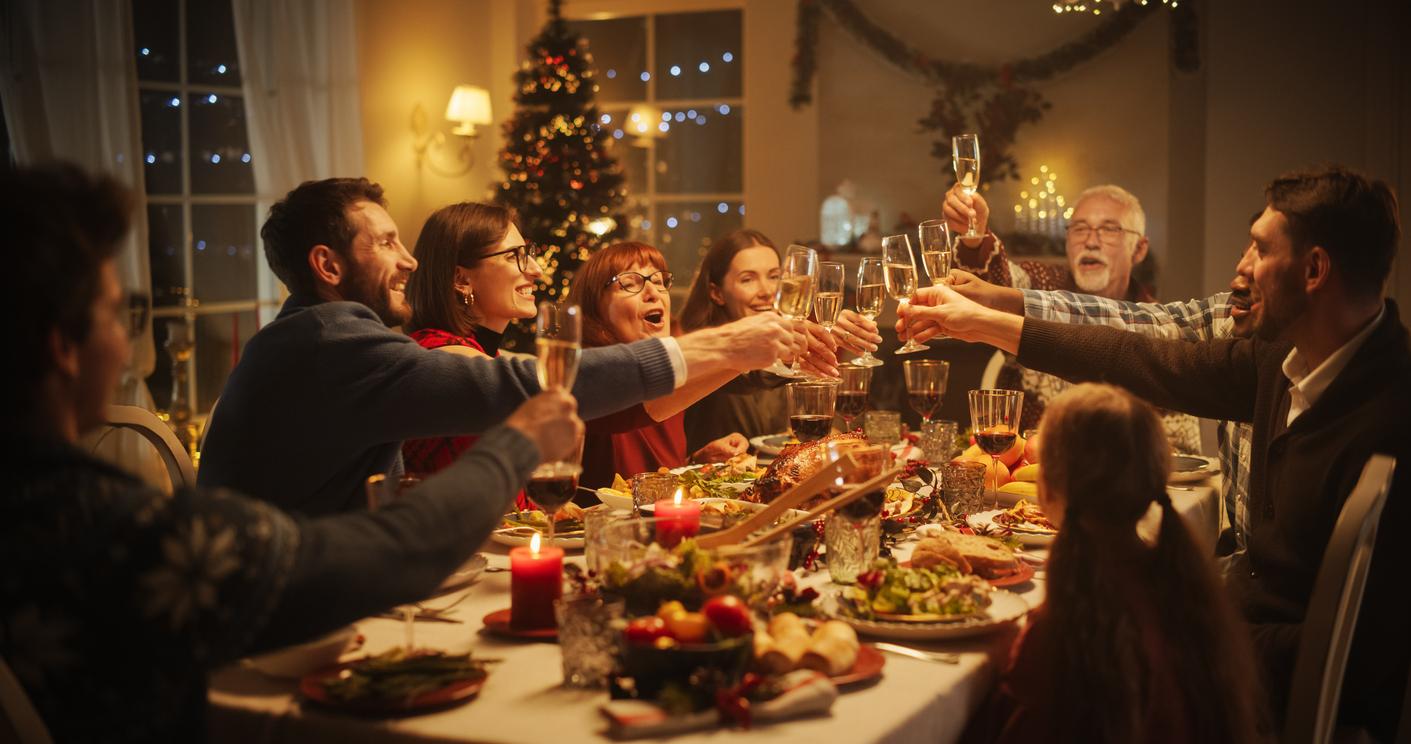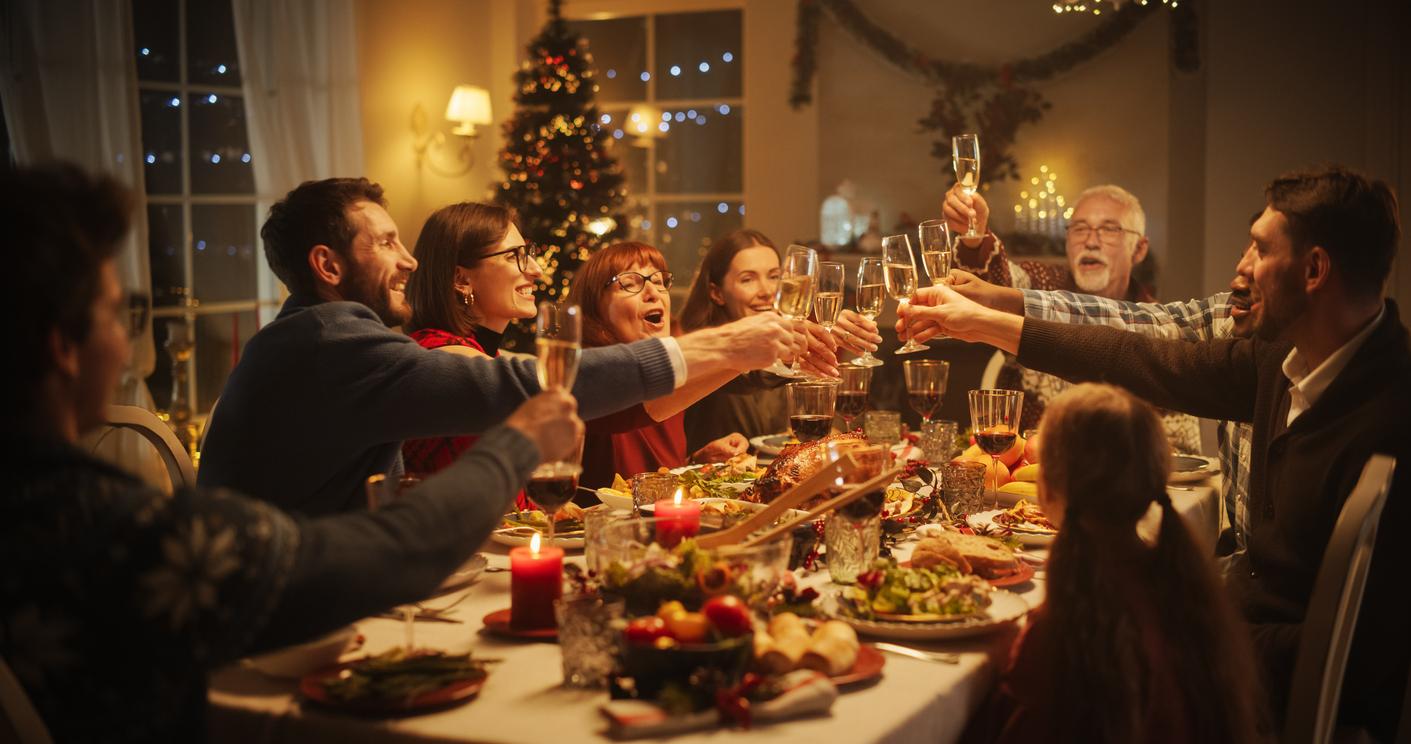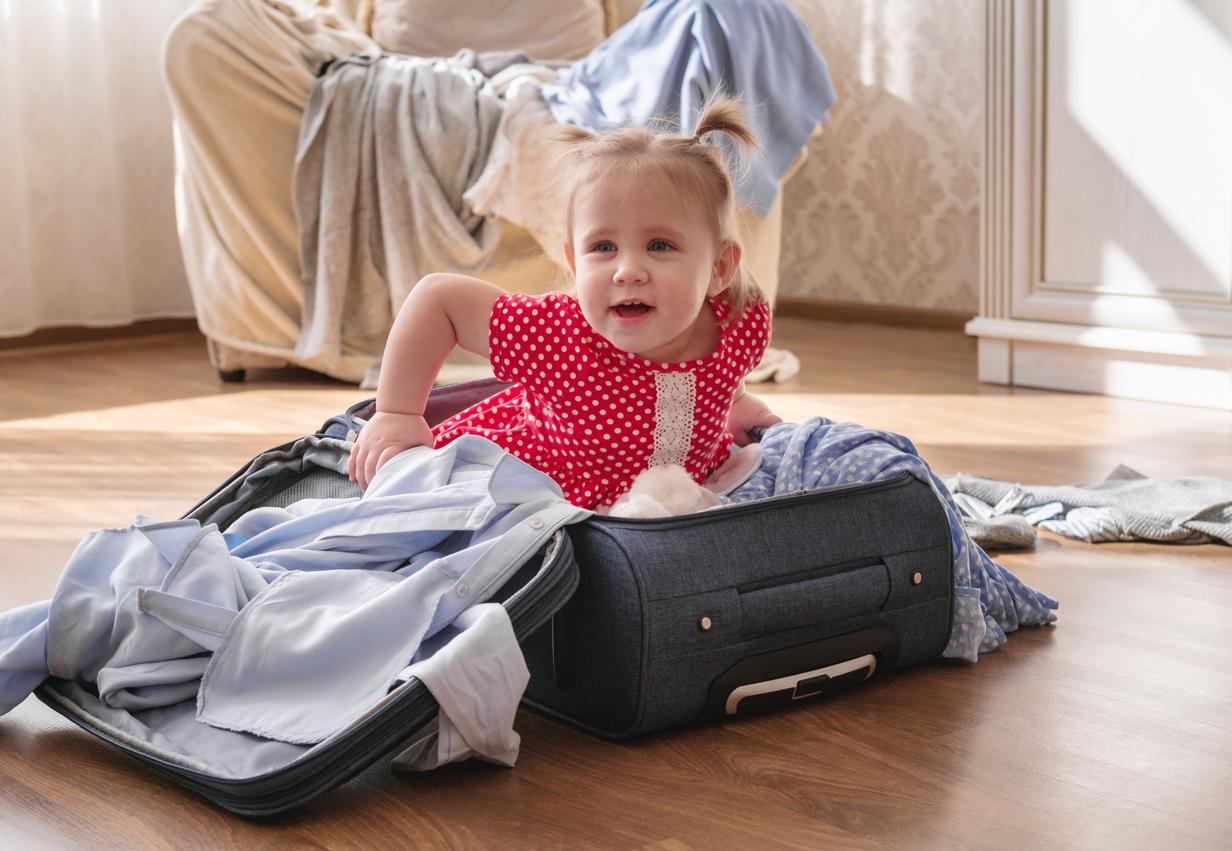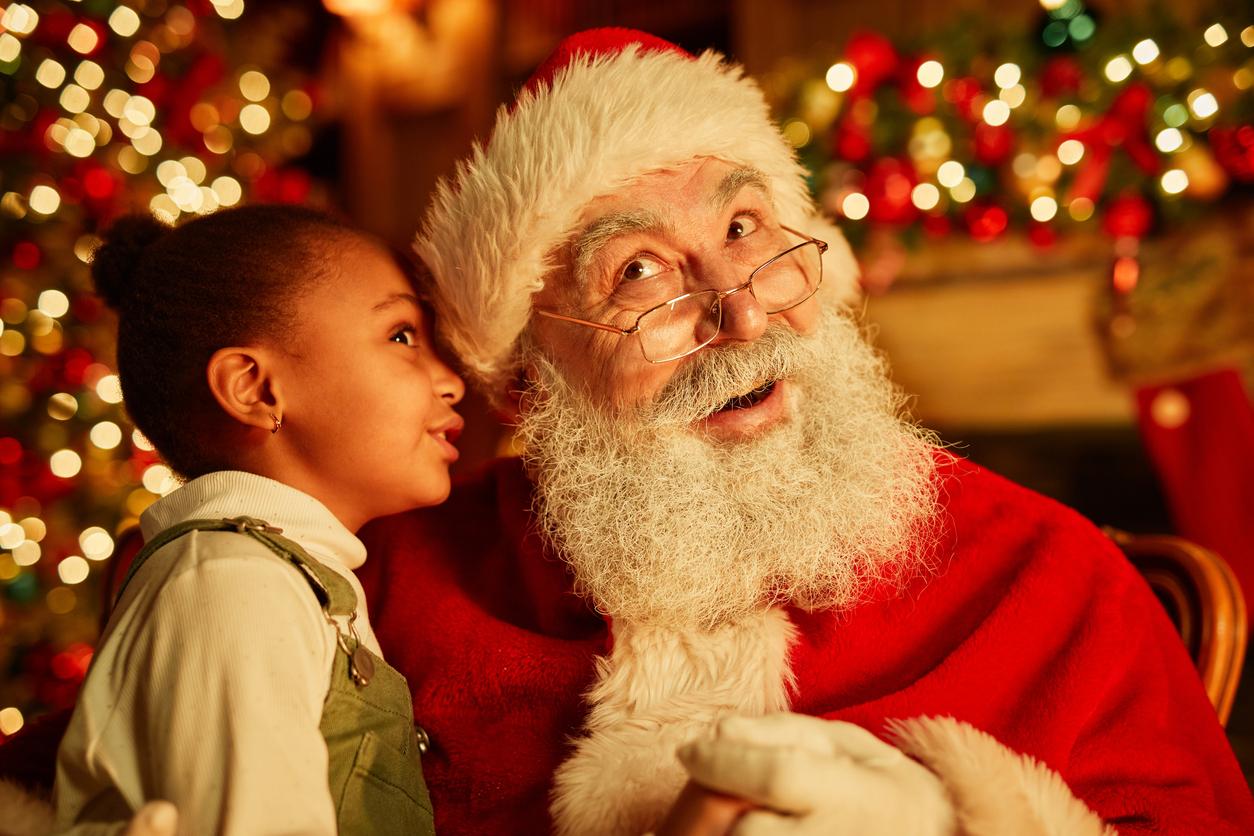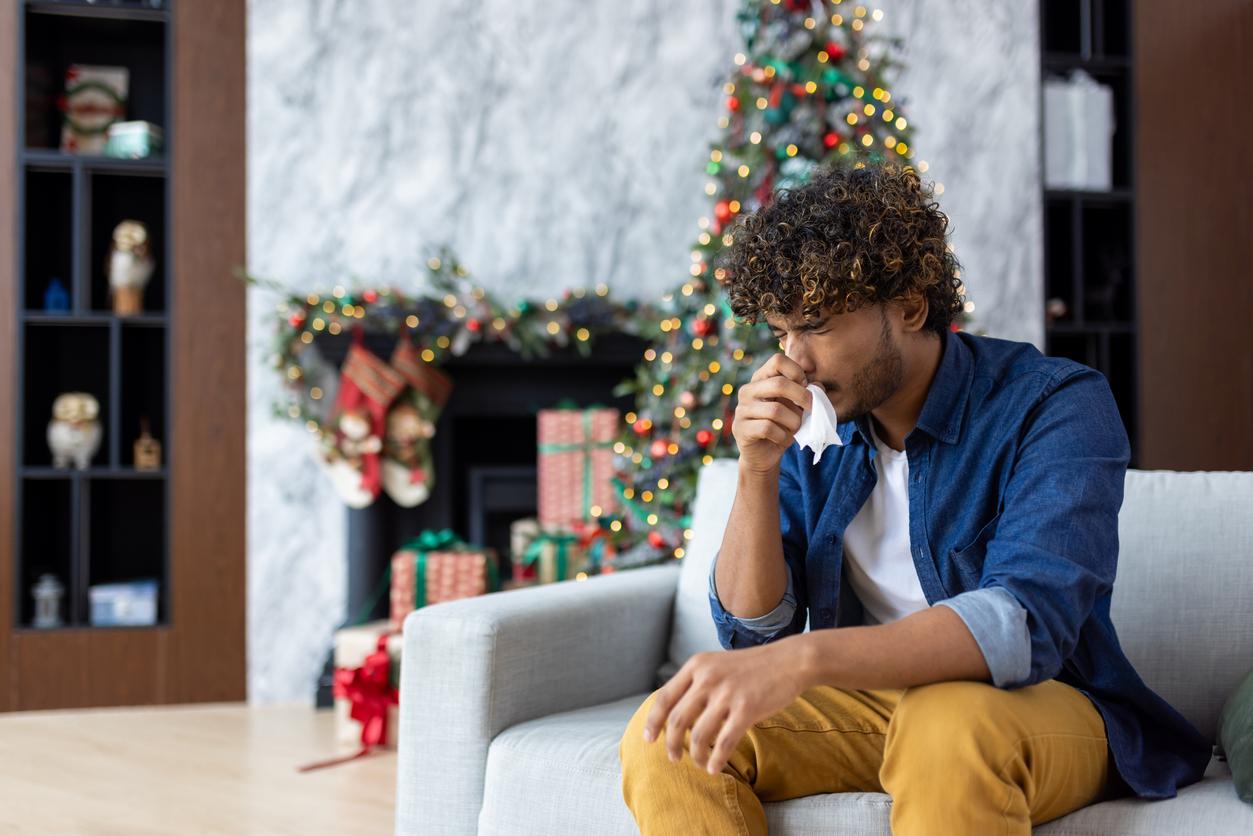Do you hate the end-of-year celebrations, Christmas carols give you hives, the prospect of having a big family meal worries you, and you are impatiently awaiting the end of this so-called festive period? You are probably natalophobic.
“In psychiatry, natalophobia (literally: Christmas phobia) belongs to the family of anxiety disorders.explains Dr. Fanny Jacq, psychiatrist. It is a simple phobia (like arachnophobia or fear of spiders) which means that it crystallizes on a specific object.“Thus, as a simple phobia, natalophobia corresponds to an irrational and uncontrollable fear of the holiday season and their symbols.
“A natalophobic person will feel particular symptoms when they come into contact with certain symbols of the end of the year celebrations: Christmas tree, Santa Claus, Christmas carols, Christmas films, Christmas lights and decorations… says the psychiatrist. We can thus observe anxiety (or even an anxiety attack) with difficulty breathing, an acceleration of the heart rate, digestive disorders (with a stomach ache, for example), a feeling of discomfort…“
Natalophobia: why do we feel depressed at Christmas?
Beyond phobia in the psychiatric sense of the term, the word “natalophobia” also designates anxiety, the feeling of ill-being, depression, sadness… that can be felt as the holidays approach. the end of the year.
“A lot of people don’t appreciate the holiday season and tend to feel down around Christmas/New Yearreassures us Dr. Fanny Jacq. I believe that this malaise has two main causes: the first is that television, cinema and social networks convey a “fantasy” image of the Christmas holidays, where families are happy and united, where there are has joy, gifts, food galore…“
However, we know that, in “real life”, the end of year celebrations are rarely perfect: “we can have financial difficulties, there can be family tensions, we can be alone or not surrounded… This discrepancy between what Christmas “should be” and “what it really is” can generate psychological suffering.“
The specialist makes a link between this malaise and postpartum depression: “there too, it is a question of a discrepancy between motherhood as it is fantasized (the delivery is perfect, the mother is not tired, the baby is calm…) and as we really experience it (fatigue, pain, stress…)“.
Otherwise, “for many, the end-of-year celebrations have a flavor of balance sheet : it’s “the” time of the year when conversations revolve around the questions “And you, where are you? What are your plans? What have you been doing lately?”, especially if we find distant family” adds Dr. Fanny Jacq. In case of low self-esteem, this questioning can be painful.
I don’t like Christmas: how to spend (serenely) the holidays?
As a simple phobia, natalophobia (characterized by anxiety attacks and uncontrollable symptoms when exposed to holiday symbols) requires follow-up by a psychiatrist or psychologist. “We will teach the patient to manage anxiety attacks which, themselves, generate predictive anxiety.explains Dr. Fanny Jacq. Concretely, the patient will develop a “toolbox”, with breathing exercises, positive visualizations…“
In parallel, it will be a question of finding the origin of the phobia itself. “It can be difficult to trace the source of certain phobias (like arachnophobia, for example); in the case of natalophobia, it is often a question of a family problem (a family secret?) or a traumatic event that occurred around Christmas (a death?). It is a work of psychotherapy.“
When natalophobia is characterized by a feeling of unease and/or depression, the specialist recommends seeking the help of a professional. “Contrary to popular belief, it is not necessary to be at the worst to see a psychologist or a psychiatrist!says Dr. Fanny Jacq. If you know that, every year, you are bad around Christmas / New Year, why not do some prevention sessions with a psychologist or psychiatrist?“
The goal? “Preparing for Christmas“replies the psychiatrist. “It’s about working against guilt and against shame: the guilt of not loving the end of year celebrations, the shame of not having a “perfect” Christmas…“
The holiday season may be the right time to (finally) accept yourself as you are. “Assume to have money problems, to have difficulties to socialize, to be a solitary person… to better live this situation and possibly to manage to progress: it is a process of self-acceptance that a psychologist / a psychiatrist can help you accomplish.“
Also respect your own limits:don’t force yourself to do things you don’t like : set limits and find compromises. For example, if the idea of a large family meal worries you, suggest that you come only for dessert or for an aperitif. You have the right not to appreciate the end-of-year celebrations: do not hesitate to say so, without aggressiveness, to your loved ones.“
Thank you to Dr. Fanny Jacq, psychiatrist and director of mental health at Qare.
Read also :
- 12 easy Christmas cookie recipes
- Mistletoe, holly and poinsettia: beware, these Christmas plants are poisonous!
- 12 light verrine recipes for Christmas










